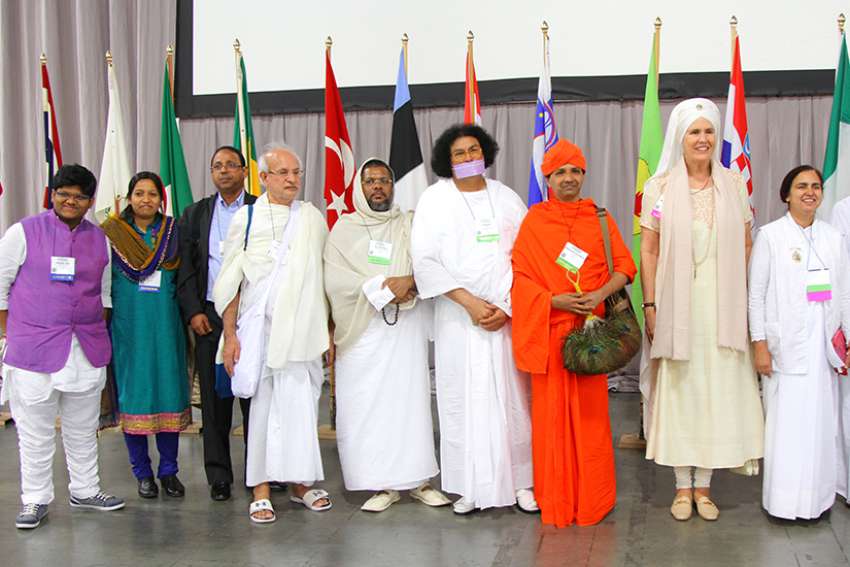“Talk about religion — yes. But also very much experience it,” said Rev. Dr. Karen Hamilton, co-chair of the Parliament of the World’s Religions being held Nov. 1-7 at the Metro Toronto Convention Centre.
Toronto will be the seventh city to host the event since its inception during the 1893 World Fair in Chicago. After a 100-year gap between the first and second parliaments, the event has become a more regular gathering with plans to convene every two years after the Toronto parliament.
Toronto organizers have already sold 5,000 tickets and are aiming to top 10,000. The last Parliament in Salt Lake City, Utah, came up just shy of 10,000 with 9,806 attendees representing 30 major religious traditions.
Speakers for the 2018 conference include Cardinal Thomas Collins of Toronto, former Canadian Prime Minister Kim Campbell, Sojourners founder Jim Wallace, writer and scholar of religion Karen Armstrong, peacekeeper General Romeo Dallaire, human rights lawyer Irwin Cotler, author Margaret Atwood, and global health pioneer and founder of Dignitas International Dr. James Orbinski.
Even before the main media campaign to attract delegates began, Parliament of the World’s Religions organizers were fielding enquiries from all over the world, Hamilton told The Catholic Register.
This year’s event will be the first to include a five-day Interfaith Family Festival, billed as a “spiritual playdate,” Nov. 2 to 6.
Opening ceremonies Nov. 1 begin at Lake Ontario, where Indigenous Canadians will welcome the world with a water ceremony before leading a procession to the convention centre and inaugurate a sacred fire which will burn throughout the conference.
A sacred music night Nov. 4 will offer an experience of religion spanning the globe, said Hamilton.
“I think it will be profoundly important for the visibility of religion in Toronto, Canada and the world,” Hamilton wrote in an e-mail. “And in bringing people together for future, concrete initiatives.”
Some of those initiatives have already begun and will continue long after the seven-day event, Parliament of the World’s Religions women’s task force co-chair Elisabeth Ursic said. One of the parliament’s major themes is the dignity of women in religion, with programming on Nov. 3 dedicated to the topic.
But it isn’t just one day of speeches and workshops. Teams of scholars are already at work highlighting the role women have played in a broad swath of world religions, along with religious teachings about the dignity of women, by adding new entries to Wikipedia on the subject. The teams have a goal of creating 1,000 Wikipedia biographies of women religious leaders.
“They are role models. They’re mentors, pathways — they’re inspirations to women of faith,” Ursic said. “And they’re inspirations to women of all cultures and all religions on the planet.”
Beyond the biographies, the Parliament of World Religions team is bolstering Wikipedia entries about individual religions by highlighting what those religions teach about women.
“We have gathered scholars to write about the religions they have expertise in, to provide how it is that this religion in its teachings and its practices dignifies women,” she said. “This will extend way past the parliament.”
By harnessing Wikipedia organizers hope to influence a mass audience of researchers from high school students to journalists to political speechwriters, said Ursic. The serious look at the place of women in religion behind the Wikipedia project has been mostly positive, according to Ursic.
“At an absolute baseline, the dignity of women is something that all the world’s religions affirm,” she said. “That helps to frame the conversation about treatment of women that can be perceived as not being dignified.”
Seven-day passes to the international event run $495 (US), or $195 (US) for students.


